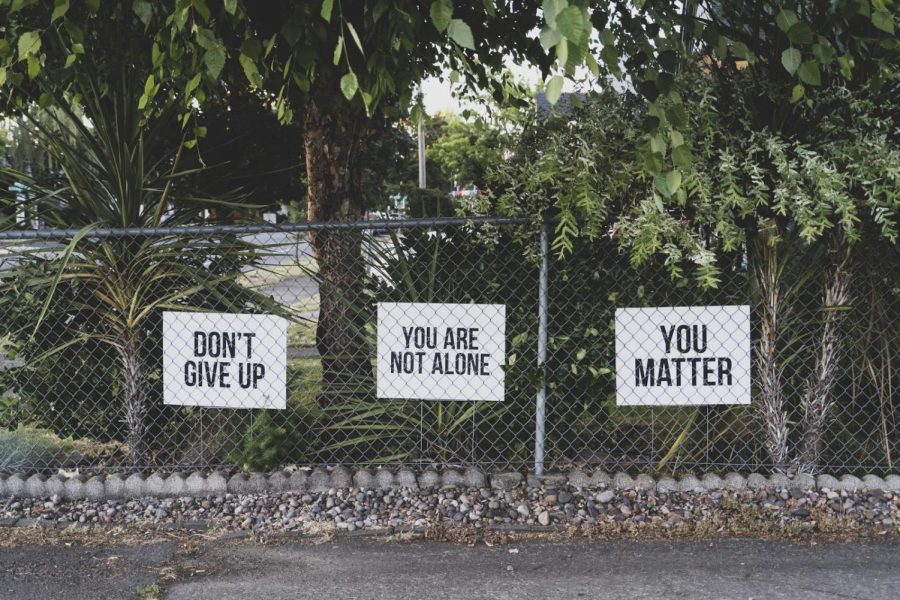Mental Health Matters: Depression
Trigger Warning: Mentions of suicide, depression, brief mentioning of self-harm.
Depression is the most common mental health mood disorder in the United States. According to the American Psychiatric Association, depression “is a common and serious medical illness that negatively affects how you feel, the way you think, and how you act. Depression causes feelings of sadness and may cause a loss of interest in activities. It can lead to a variety of emotional and physical problems”. There have been numerous studies done to answer why some people are more prone to depression. Many contributing factors may not seem immediately apparent. The environment can contribute to depression, including living in poverty, witnessing or experiencing violence, neglect, or abuse. Certain medical conditions can put one at a higher risk of suffering from depression, including chronic illness and insomnia. There is also a genetic component to depression. The biological chemistry of some people’s brains may cause them to be predisposed to have depression. If someone has a family member with depression, there is a chance a relative could also have it. Other risk factors for depression are low self-esteem, certain medications, substance abuse, and stressful events. Major depressive disorder, atypical depression, persistent depressive disorder, adjustment disorder with depressive disorder, postpartum depression, and seasonal affective disorder are all different types of depression. Symptoms can vary with age and type of depression. There are few variances in the different types of depression, but those differences may be significant in getting the proper treatment.
Major depressive disorder can affect day to day activities and last for a lengthy amount of time. Between major depression and persistent depressive disorder (dysthymia), there is also minor depression. The symptoms are less extreme, and they do not last as long;
Atypical depression is a subtype of major depression and has its specific symptoms;
Persistent depressive disorder results in a dark mood, which can be present for the majority of two years. However, children younger than 18 may experience symptoms for a minimum of one year. The symptoms of persistent depressive disorder can not have a break for longer than two months and remain a disorder diagnosis. The symptoms are not as intense as in a major depressive disorder, but it has been known that people with a persistent depressive disorder experience brief periods of major depressive disorder;
Adjustment disorder with depressive mood is diagnosed when depression symptoms are present for three months of a stress-related situation. Symptoms should calm down within six months when the significant change that brought stress is gone or is being addressed;
Postpartum depression occurs after a baby is born. It can affect new parents. This type of depression occurs the first 2-3 days after birth and can last up to two weeks, but some may last longer. Untreated, it can last up to 2 months or longer;
Seasonal affective disorder is having significant depressive disorder symptoms only during certain times of the year.
Getting Help
Early diagnosis and treatment is critical. If you think that you may be experiencing depression, share your concerns with your parents or other adults in your life. Do not self-diagnosis. Seeking help is the first step and talking to a medical professional is required. The medical professional and you will discuss treatment options. Getting treatment at the earliest signs of depression can stop it from worsening. Some other ways to reduce the symptoms of depression include exercising, keeping a good sleep schedule, and eating a healthy diet. It is important to remember that help is always available and do not allow feelings of embarrassment or shame to cause you not to seek help.
Helping Others
To help others, make sure that friends and family always know that you are there for them. Asking for help can be very difficult for some people, but if the willingness to help is apparent and you are there to listen and provide support, it can become more comfortable to ask for help. Know your limitations and realize that an adult will need to be told about the situation. It might be scary for your friend to admit to an authority figure that they have a problem. Having you there might help, so offer to go along for support.
An easy way to help is to be there and offer support. Don’t make any tentative or insensitive comments, so watch out for trigger words. A way to be aware of a trigger word is to realize a change in mood when mentioning a specific topic. Offer encouragement and remember to be patient, understanding, and welcoming. Do not make insensitive comments about mental illness in general, whether someone has depression or not. Do not use depression as a synonym or filler word for feeling sad because it undermines the importance of depression and can attach a different meaning to the word. And, finally, speak up if you are worried about a friend.
Suicide Prevention
According to the Depression Bipolar Support Alliance, two-thirds of untreated depression can lead to suicide. If you are experiencing any suicidal thoughts, please call the Suicide Prevention Lifeline at 1-800-273-8225 or 1-800-273-TALK. (NOTE: In July 2022 this number will change to the three-digit number, 988). You can call 24/7 to speak with a counselor. Their website has helpful tools and motivational stories about people’s unique experiences with depression and suicide.
You can also find a list of resources on the OLGCHS website under Personal and Academic Counseling.
Thank you to Ms. Thompson-Jones for her professional insight.

